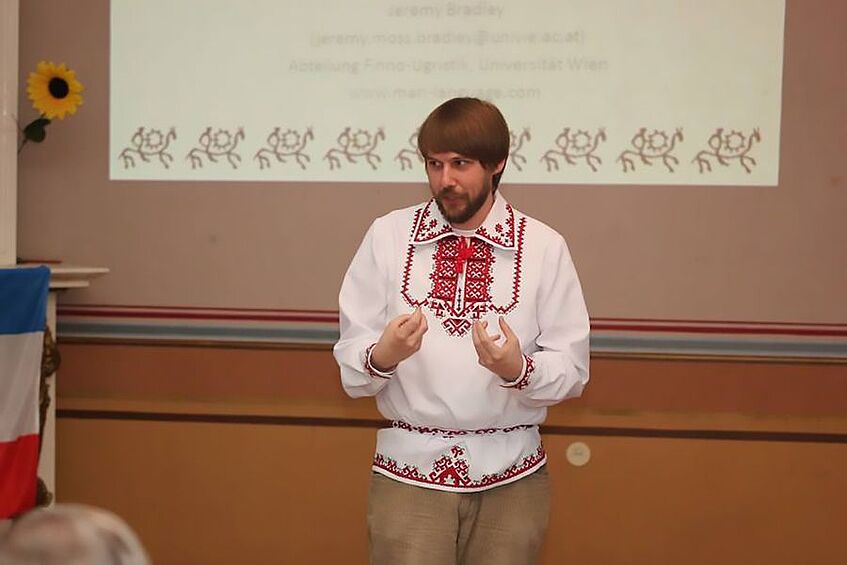Hungarian and Finno-Ugrian Studies (Master)

© MariUver.com / Vasli Nikolajev
The aim of the master's degree in Hungarian Studies and Finno-Ugric Studies is to train scientists and experts in language and cultural research and cultural mediation who apply their qualifications in various areas of science and culture, administration and business, or who are scientists in the framework of the doctoral program can further qualify. Depending on the specialization (Hungarian Studies or Finno-Ugric Studies), the scientific and didactic focus of the course lies on the literary, cultural and / or linguistic issues of the Hungarian-speaking cultural area or in the broader sense of the Finno-Ugric (Ural) speaker communities and their cultures.
The students will be able to handle the language, texts and verbal cultural forms scientifically, not only in the traditional written forms but also in digital environments. Understanding of the linguistic and cultural diversity and the central importance of language and cultural contacts plays a fundamental role in both specialisations.
Master of Arts
Attention
Instruction Language German
Please note that the instruction language of this programme is German. To start the degree programme, you need to hold a certificate of German proficiency on C1 level.
Facts & Figures
- Students: n.a.
- Graduates in the last academic year: n.a.
- Number of semesters needed for graduation (median): n.a.
Data updated on: 03.12.2024
Admission Procedure
Information about the admission procedure
Information on Previous Studies:
In any case eligible degree programmes at the University of Vienna:
Getting started
Study Programme
Students have to choose one of the following two specialisations within the master's programme: either Hungarian Studies (literary studies) or Finno-Ugric Studies (linguistics).
To complete the degree, a master's thesis is written and a master's examination is held.
Five Concepts
which you will deal with during your studies:
- Sociolinguistics
- Komi
- Agglutination
- Uralic studies
- Phonology and morphology
... and many more.
Overview of the programme structure & topics
Here you find the current offer of courses for this programme to gain better insight into the topics and structure. For more information please click on the respective level.
After Graduation
Graduates can pursue a career in the following areas:
- museums and archives
- advertising agencies, publishers and media
- educational institutions
- research and university institutions
- international institutions and NGOs.
Graduates' Perspective on the Degree Programme
Graduates ...
- say that this degree programme receives the grade: 1.2 (excellent)
- rate the level of difficulty as: 3.8 (high)
→ These results are basd on feedback from 6 graduates.
*You can find further assessments of the degree programme from its graduates’ perspective in the graduate survey of the master’s programme in Finno-Ugrian Studies (in German).
Graduates ...
- find employment within 2 months after graduation on average.
- earn an average of € 2,719 (women) and € 2,702 (men) gross per month within three years after graduation.
- work full time at a percentage of 68% (women) and 62% (men) within three years after graduation.
*You can find further information on career entry and career paths in the tracking of graduates "Arts and Humanities".
